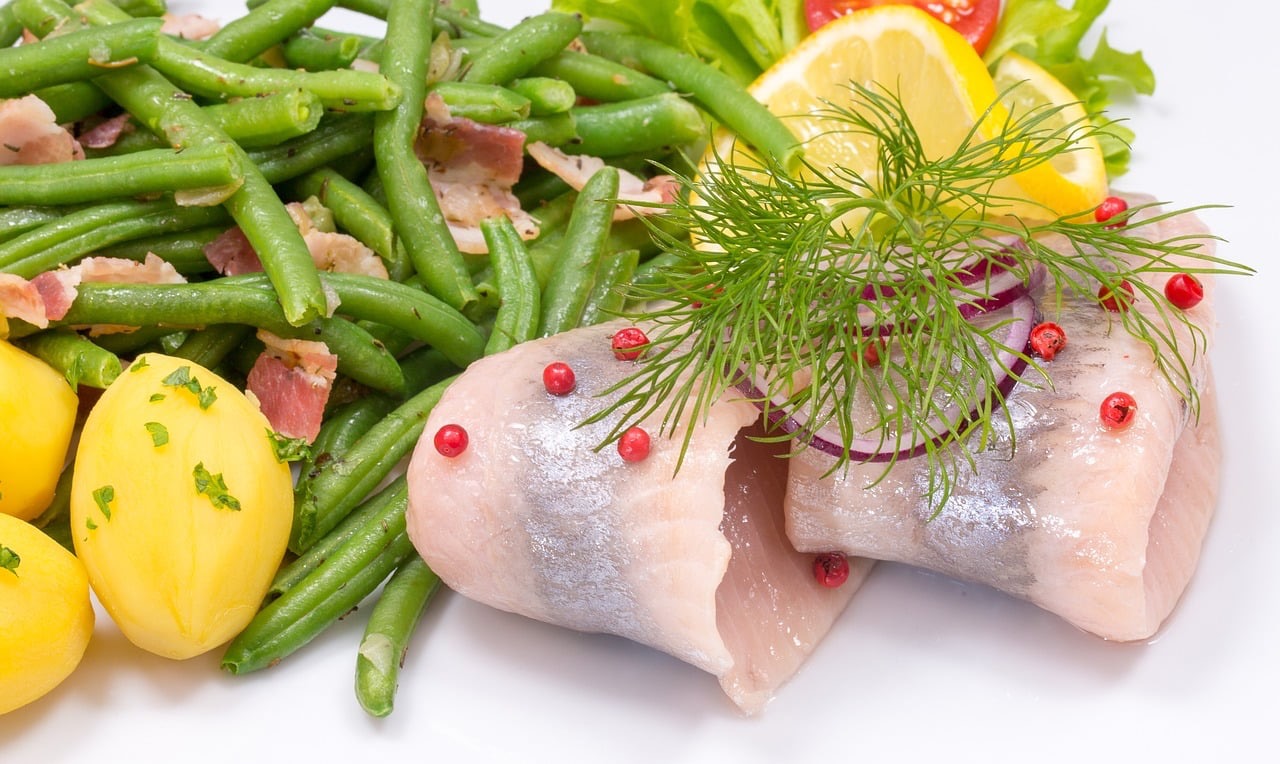Index
| 1. What is seasonal affective disorder (SAD)? 1.1 Winter blues, winter depression, classic depression - what are the differences? 1.2 Symptoms of a winter depression |
| 2. What causes a winter depression? |
| 3. Can I reduce the symptoms? |
| 4. Disclaimer |
1. What is seasonal affective disorder (SAD)?
In the cold and dark season, we experience mood swings, persistent tiredness, sleep disorders and reduced performance. Around 5 percent of the population are more severely affected and suffer from winter depression. Winter depression usually occurs with the change to the dark season and can last until March or April. The symptoms usually occur during the winter months and subside on their own as soon as the days get longer.
The number of people affected is lower in southern countries and higher in Scandinavia. Germany is in the middle of the pack. The people most affected are those who leave the house in the dark in the morning, come home in the dark in the evening and spend the day indoors.
1.1 Winter blues, winter depression, classic depression - what are the differences?
At first glance, these three terms sound very similar, and the first two are often even used colloquially as a synonym. However, this is not correct. Even if some symptoms overlap, there are sometimes major differences.
1.2 Symptoms of a winter depression
Winter depression can manifest itself both mentally and physically. Here are some examples (the list is not exhaustive)::
Emotionale/psychische Symptome | Physical symptoms |
| Mood swings/bad mood, cheerlessness | Increased need for sleep, problems waking up |
| listlessness, listlessness, depressed mood | Cravings, high carbohydrate consumption (e.g. chocolate) |
| Concentration disorders, memory disorders | Weight gain |
| Imbalance | Headache |
| Neglecting social contacts | "let oneself go" |
2. What causes winter depression?
Es gibt mehrere Faktoren, die Winterdepressionen begünstigen können. Einer der Hauptgründe ist das abnehmende Tageslicht, was sich auf unseren Hormonhaushalt auswirkt. Insbesondere das Serotonin und Melatonin spielen hierbei eine wichtige Rolle, denn die Produktion dieser beiden Hormone ist abhängig von Licht und Dunkelheit. Auch ein Vitamin-D-Mangel und Stress können eine SAD begünstigen.
In summer, we can look forward to around 16 hours of daylight per day. In winter, there are only 8 hours, i.e. just half of that - resulting in short days and long nights.
When darkness falls, our pineal gland in the brain produces and releases the sleep hormone melatonin. We feel tired and sleepy. The problem is that it gets dark early in winter, so we also get tired and sluggish early. Our day-night rhythm gets mixed up.
To produce serotonin, our pineal gland needs daylight, specifically the blue components of light with a wavelength of around 480 nanometers. This blue controls our internal clock. On sunny days, we get enough daylight so that the pineal gland can produce enough serotonin. In winter, to put it simply, the pineal gland uses this serotonin to produce melatonin. This results in a serotonin deficiency, which leads to mood swings and listlessness.
Strictly speaking, vitamin D is not a vitamin in the classic sense. It is stored in our skin as a precursor of a hormone and is only converted into active D3 when exposed to sunlight (more precisely: UV-B radiation). There is increasing evidence that people who suffer from winter depression or classic depression have a vitamin D deficiency. This is suggested by studies of the blood levels of those affected. Although our body can produce and store D3 itself via our skin in summer, this depot is often not sufficient to maintain it throughout the winter. In the winter months, we cannot build up vitamin D because the sun is too low/oblique in our latitudes. Factors such as latitude, position of the sun, cloud cover, altitude above sea level and the ozone layer influence D3 production on our skin.
It is worth having your blood levels measured by a doctor and topping them up under their supervision if necessary. Because once a deficiency is indicated, you cannot compensate for it with food alone.
However, it has not yet been proven that a high vitamin D level can completely prevent winter depression. Research is still being carried out here.
There is a lot going on in everyday life, especially in winter in the run-up to Christmas. Added to this is the stress at work, when certain tasks have to be completed by the end of the year. Excessive stress also has a negative impact on our mood and our immune system.
3. Can I reduce the symptoms?
The good news is: Yes! You can greatly influence the intensity and course of a winter depression. The following tips can help you::

3.1 Out into the fresh air!
Exercise in daylight, ideally in the morning or at lunchtime in the fresh air, supports your hormone metabolism and promotes your well-being. It should be at least 30 minutes, 1 hour is optimal.
A 30-minute walk during your lunch break is ideal to support serotonin production and provide the brain with additional oxygen.
Selbst wenn der Himmel im Winter verhangen ist, kommt er immer noch auf bis zu 5000 Lux. Zum Vergleich: im Sommer sind es 10.000 bis zu 80.000 Lux draußen unter freiem Himmel. In Innenräumen kommen wir auf lediglich 300 bis 800 Lux.
3.2 Enjoy the good mood!!
Foods rich in vitamin D and tryptophancan have a preventative effect and alleviate symptoms. These include (oily) sea fish such as herring, salmon, sardines and tuna, as well as beef liver, cheese, pulses, bananas, nuts, dates, etc.
If you do not eat meat/fish, taking vitamin D supplements could be useful. Ask your doctor about this. It is generally advisable to have your own vitamin D level measured and to replenish your stores under medical supervision, as our skin cannot produce vitamin D in winter due to the lack of light..

Tryptophan is a precursor or starting substance for the formation of the hormones serotonin and melatonin. It is contained in protein-rich foods such as edamame, soybeans, sea fish, cashew nuts, oatmeal, etc. If you consume enough tryptophan, your body can produce serotonin and convert it into melatonin..
3.3 Fill up with light!
As you have already read above, light has a decisive influence on our well-being and mood, and not just in winter..
There is a lot to say about this. We have therefore dedicated a separate article to the topic of light and light therapy. Simply click on the following button to find out more.
4. Disclaimer
We would like to expressly point out that this article and light therapy do NOT replace medication for diagnosed depression or other illnesses. In this blog, we inform you about the possibilities and benefits of light. These are recommendations that do not replace medical advice or prescribed medication. Please consult your doctor if you experience symptoms.
Image sources: 1) Titelbild: kwest, Shutterstock.com; 2) Image Oint Fr, Shutterstock.com





